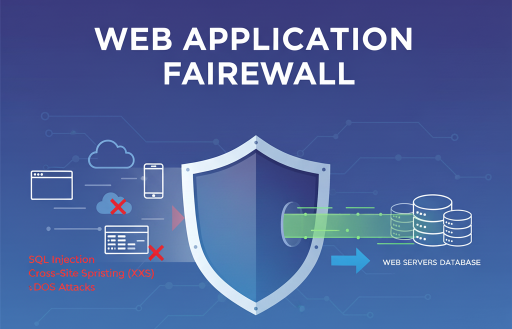QKS Group’s Web Application Firewall (WAF) Market Research provides an in-depth evaluation of the global market landscape, highlighting emerging technology trends, evolving market dynamics, and future growth outlook. The study offers strategic insights to help technology vendors understand the current competitive environment and refine their growth strategies, while also assisting end users in assessing vendor capabilities, differentiation factors, and market positioning.
Definition: What is a Web Application Firewall (WAF)?
A Web Application Firewall (WAF) is a specialized security technology that acts as a shield between web applications and the internet. It analyzes, filters, and manages HTTP/S traffic to identify and block harmful requests before they reach the application. WAFs are essential for safeguarding sensitive data, maintaining application availability, and ensuring compliance with security standards such as PCI DSS. By mitigating vulnerabilities that attackers often exploit at the application level, WAFs play a crucial role in strengthening an organization’s overall cybersecurity posture.
According to Analyst at QKS Group, “A Web Application Firewall (WAF) is a dedicated cybersecurity solution designed to protect web applications by monitoring, filtering, and blocking malicious HTTP/S traffic at the application layer (Layer 7 of the OSI model). Unlike traditional firewalls that safeguard network infrastructure, WAFs focus on preventing application-layer attacks such as SQL injection, cross-site scripting (XSS), and session hijacking.”
The report features a comprehensive competitive analysis and vendor assessment using QKS Group’s proprietary SPARK Matrix™ framework. This analysis evaluates and ranks leading Web Application Firewall vendors that have a significant global footprint. Key vendors covered in the SPARK Matrix include A10 Networks, Akamai Technologies, Amazon Web Services (AWS), Alibaba Cloud, Barracuda, Citrix, Cloudflare, F5, Fastly, Fortinet, Imperva, Microsoft, NSFOCUS, Radware, Rohde & Schwarz Cybersecurity, Sangfor Technologies, and Tencent Cloud.
Frequently Asked Questions (FAQs)
- What is the main difference between a Web Application Firewall (WAF) and a traditional firewall?
A traditional firewall protects the network layer, controlling traffic between internal and external networks. In contrast, a WAF focuses on the application layer (Layer 7), inspecting web traffic (HTTP/S) to detect and block attacks targeting web applications, such as SQL injections or cross-site scripting (XSS).
- Why is a WAF important for modern businesses?
With most business operations now running on web applications, WAFs are essential for preventing data breaches, protecting customer information, and ensuring compliance with security standards. They also help maintain business continuity by defending applications from DDoS and bot attacks.
- Can a WAF protect applications hosted in the cloud?
Yes. Many modern WAFs are designed for cloud-native environments, offering scalable protection across public, private, and hybrid cloud infrastructures. Leading cloud service providers like AWS, Microsoft Azure, and Google Cloud integrate WAF capabilities into their security offerings.
- How does a WAF detect and prevent attacks?
WAFs use a combination of signature-based detection, behavior analysis, and machine learning to identify and block malicious traffic. They inspect HTTP/S requests, validate input data, and enforce security policies that prevent known and emerging threats.
Custom Research Service
Our custom research service is designed to meet the client’s specific requirements by providing a customized, in-depth analysis of the technology market to meet your strategic needs. Further, our custom research and consulting services deliverable is uniquely effective, powerful, innovative, and realistic to help companies successfully address business challenges. Our team of experienced consultants can help you achieve short-term and long-term business goals.
#WebApplicationFirewall #WAFMarket
#CyberSecurity #ApplicationSecurity

